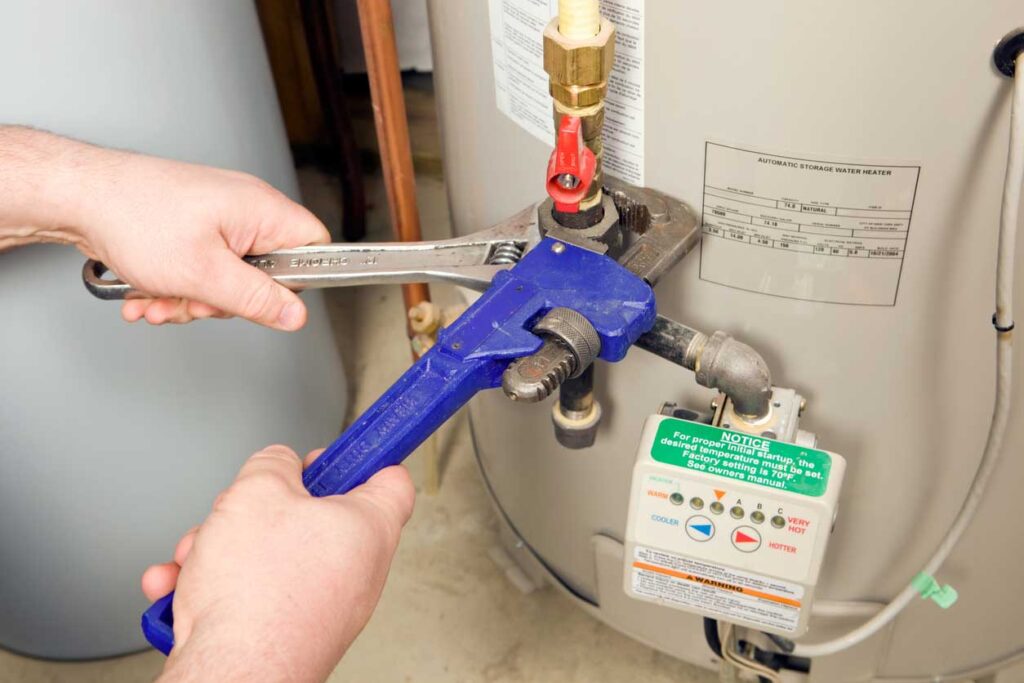Everything You Need to Know About Choosing Your Next Water Heater
After a brilliant summer—and mercifully extended and unusually warm autumn—we’re finally headed into the grip of winter. When the weather does actually turn arctic and the ski slopes get more traffic than Highway 400, there are few comforts quite as nice as a hot shower. Unless, of course, your water heater gives out. We’ve all been there. Lathered up in soap, head full of shampoo, and belting out our favourite Leonard Cohen song when, all of a sudden, our steaming hot shower turns into a polar plunge. After we rinse off all of that soap and shampoo in what feels like recently melted snow, we make a teeth-chattering call to the plumber—maybe yours truly—to get the issue all sorted out. Follow this advice and, this year, you can avoid that frosty experience and leave the cold-water showers to the penguins and the polar bears.
How Do You Know When You Need a New Water Heater?
If you know what signs to look out for, you can avoid having your water heater cut out on you, mid-shower.
- Age: Water heaters generally last 10-15years with some able to make the push to 20years if they’ve received servicing and repairs. Check the age of your water heater and if it’s nearing that 15year milestone, it’s at least time to start thinking about getting a new one.
- Loss of Volume/Temperature: If you’ve noticed that, over the last few years, your water doesn’t get as hot as it once did, that could be a sign that your current heater is on its last leg. Similarly, a drop in the volume of hot water that you have can be an indicator that it’s time for a new heater.
- Discoloured/Smelly Water: If you’re walking out of that hot shower smelling worse than you did walking into it, it might not be your soap. Reddish-brown or rust-coloured water and metallic or stagnant smelling water can be indicators that your water heater needs replacing.
- Strange Noises: Mysterious noises emanating from your basement isn’t always a sign of ghosts—just usually. If your water heater sounds like it’s struggling then it probably is and it would be better off joining that ghost in the graveyard.
- High Heating Bills/Frequent Repairs: That spike in your heating bill might not be the result of high energy prices. Old and/or broken water heaters are less efficient and can run up your heating bill. Similarly, if the repairs to your aging water heater will cost anywhere near the same as a new one, simply replacing it will save you money over time.
Different Types of Water Heaters
The hunt for a new water heater starts with identifying your hot water needs. How much hot water do you use? How many people use hot water in your household? What time of day do you use hot water most? By answering these questions, you can identify what type of hot water heater will best suit your needs.
- Storage Tank Water Heater: The most common type of water heater is the storage tank heater. They work by heating and storing water in an insulated tank. With varying tank sizes, you can find a heater that best fits your needs. However, older homes and/or smaller homes may not have enough space to accommodate a large tank size if you require one.
- Tankless (On-Demand) Water Heater: Tankless water heaters provide hot water on-demand. They are ideal for large households and/or households with multiple simultaneous hot water needs. Tankless heaters also tend to be more energy-efficient which makes them an attractive option with rising energy prices.
- Hybrid Water Heater: If energy cost savings is at the top of your priority list, hybrid water heaters might be your solution. They operate by using electricity to draw heat from the surrounding air and ground to heat water. Hybrids work best, however, in warm spots where they have lots of space around them so cold basements don’t make for good locations.
- Solar Water Heater: Drawing power from the sun to warm water, solar-powered water heaters work best with homes that are already solar-equipped. Further, solar-powered water heaters require a backup for overcast and/or cold days—or, in other words, every day after Labour Day here in Canada.
- Condensing Water Heater: These types of water heaters are suited for homes that are gas-powered. They use the exhaust and fumes generated by the other appliances drawing power from your home’s natural gas system. Also high in energy efficiency, you’ll still require a tank to store all of your hot water.
Get a Professional Plumber’s Advice
Regardless of the type of water heater you decide to go with—whichever is least likely to leave you with a “cold shoulder”—you’ll still want to call the plumber. Your water heater needs are specific to your home and getting a professional’s advice is the best way to save money and ensure that your new water heater is installed safely and in accordance with local and provincial laws and guidelines. Don’t get caught out in the cold this winter. [Request your appointment] with Plumbing Medic and let our experts bring the warmth of the hot springs to your home!

